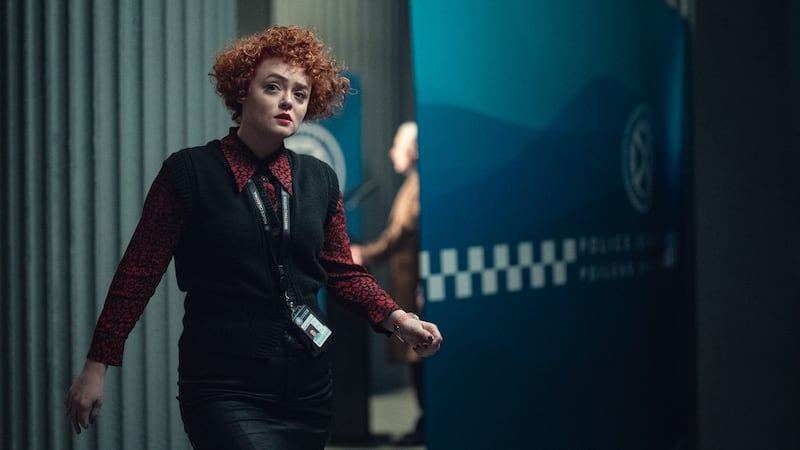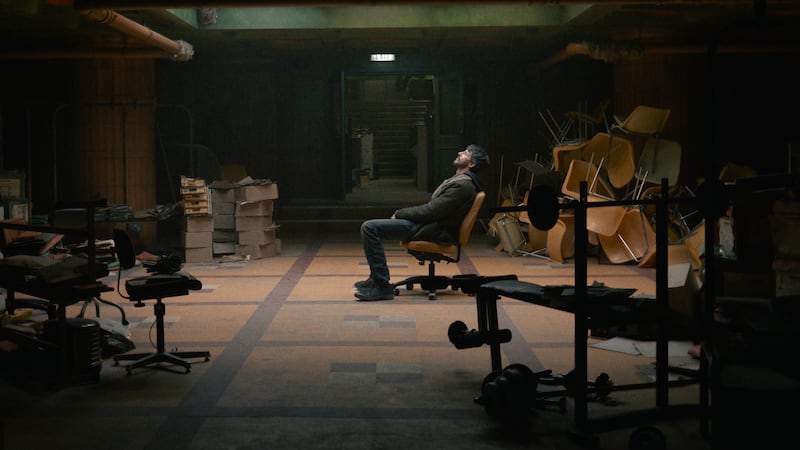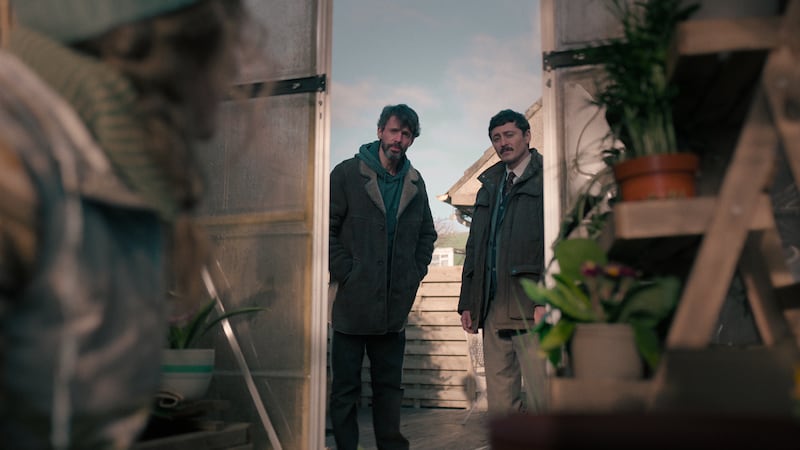Now that Christopher McQuarrie has been promoted from Jack Reacher writer-director to full-time Tom Cruise Whisperer, Scott Frank has lost his competition as premier screenwriter and sometime director in the field of adapting literary pulp.
Frank has worked with Elmore Leonard books (adapting Get Shorty and Out of Sight into beloved films), X-Men comics (co-credited on screenplays for The Wolverine and Logan), and his own version of Sam Spade (for the recent TV series Monsieur Spade), among other projects that keep their focus trained on characters amidst their noirish thrills.
His new Netflix series Dept. Q continues that lineage, adapting a series of Danish crime novels about a scrappy but talented cold-case unit, relocating the action to Edinburgh, Scotland.
It’s a premise seemingly ready-made for a network show: Carl Morck (Matthew Goode), returning to police work after a horrific incident that’s left him physically and emotionally scarred, is exiled to a basement office where he will run a new cold-case investigative unit in order to drum up some positive (and podcast-friendly) publicity for the department.
This will give his superiors access to an infusion of new funds while also sequestering Carl from most of his colleagues, who he tends to berate as hopelessly incompetent. From this pool, Carl reluctantly draws Rose (Leah Byrne), a young woman eager to prove herself following a breakdown, and Akram Salim (Alexej Manvelov), a Syrian transplant hired as an administrative assistant, as members of his skeleton crew.

It’s Akram, a keen-eyed cop in his home country, who selects the case that the show follows throughout the eight-episode season: the presumed death of a woman who vanished from a ferry trip four years earlier. (Being a streamer, it’s just one cold case at a time, thanks.)
The missing woman isn’t a total enigma; the audience perpetually knows bits of information that the detectives don’t, thanks to a bit of structural cleverness from co-creators Frank and Chandi Lakhani involving hard-charging prosecutor Merritt Lingard (Chloe Pirrie), whose brittle personal manner parallels Carl’s own interpersonal difficulties.
Making the victim an actual character in the show, rather than a symbolic specter, is a smart way of mitigating the show’s slow start. What it can’t fully conquer, however, is the familiarity of Carl’s supposedly distinctive manner.
Frank’s last two TV series, the wittily bittersweet Monsieur Spade and the Netflix megahit The Queen’s Gambit, both had theoretically difficult but actually charismatic leads at their center: Clive Owen as a retired detective in the former, and Anya Taylor-Joy as a brilliant chess prodigy in the latter, both concealing their pain with exteriors equal parts forbidding and irresistible. Carl Morck in Dept. Q doesn’t quite match up in that area.
It’s not necessarily a knock on Matthew Goode so much as on how his character is written; with his primary trauma laid out in a harrowing opening scene (it looks, however briefly, as if the lead character has been immediately killed off), he comes across as a variation on Dr. House – which is really to say, a more intentionally abrasive Sherlock Holmes.

He’s a great investigator with – get this – an impatient, impolitic manner! And on television, you say?! Now would you believe he has a prickly, eventually more rewarding relationship with a mandatory police therapist, played by the always-welcome Kelly Macdonald? (To further shore up the show’s Scottish bona fides, it also has a supporting role for Macdonald’s occasional co-star Shirley Henderson.)
Goode plays ill-tempered weariness well enough, but Dept. Q hasn’t backed him up with enough unexpected notes in the writing. Spade had post-noir patter and Queen’s Gambit had Taylor-Joy’s impeccable way with silences; Carl Morck is mostly, as advertised from the very first scene, a hostile guy with what his therapist calls a superiority complex. Sometimes the hostility is justified and sometimes it isn’t; rarely does it ever feel especially fresh or surprising.

There’s comfort-TV pleasure, of course, in seeing Carl soften slightly and gain respect for his two team members, and the central story, like any good mystery, has more complications that it initially appears – at least through the first five episodes provided for review. Not seeing the resolution play out puts Dept. Q on the bubble in terms of time-worthiness, something that’s not true of every mystery show – wasn’t especially true of Frank’s Monsieur Spade, in fact.
That series and the non-mystery Queen’s Gambit both locked into their characters and stories quickly enough that pulling off a satisfying finale wasn’t a make-or-break proposition. Dept. Q has that stronger, network-style hook right off the bat, but its sense of gritty prestige never overpowers the feeling that this is a page-turner sometimes turning its pages at half speed. It’s not quite up to Frank’s usual level.
The post ‘Dept. Q’ Is the Scottish Netflix Crime Show That Will Be Your Obsession appeared first on The Daily Beast.



